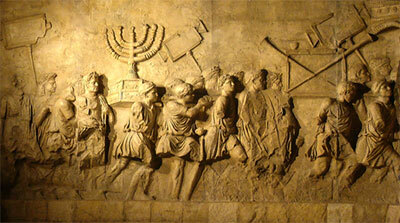Who is to Blame?


Who is to Blame?
Years ago a senior facing a severe decline in eye sight asked to speak with me. She said, "Rabbi, I have mostly been a good person throughout my life, but once, when I was younger, I did a terrible thing. I am quite sure that I'm losing eyesight as a punishment for what I did." We spoke for some time as I tried to convince her that she was confronting a medical condition, not a moral condemnation. In the words of Rabbi Harold Schulweis (z'l), nature is amoral. Nature and science do what they will, and it is an unhealthy theology to conclude that suffering comes as a punishment.

That being said, unfortunately, she is not the first Jew to posit such thinking. The Jewish holiday of Tisha B'av is coming up, this year July 31-August 1. Tisha B'av is a day of fasting that is set aside to mourn the destruction of the Temples in Jerusalem in 586 BCE by the Babylonians, and in 70 CE by the Romans. According to the Rabbis, the Temple was destroyed because of sinat chinam, senseless hatred between Jews. The Rabbis felt remorse for the fact that the Jewish people were divided and fractured at that time and concluded that the Temple's destruction must have been sent as a punishment.
To this I say the following: while I reject the notion of divine punishment, I do recognize the reality of natural consequences. When people are consumed with hatred their words and actions flow from that hatred. When people are filled up with love and warmth, very different words and actions flow from that love. The consequences are often immeasurable. Sometimes there is no way to connect the dots. But all relationships are affected by emotions and emotions can take on a life of their own.
Even today, there is political and religious conflict over Jerusalem and even over the holiest of sites, the Western Wall, also known as the Kotel. Orthodox and non-Orthodox Jews are battling over how to make that place holy. There are new wedges of division between the Israeli government and diaspora Jewry over Jerusalem's holiest site.
Isn't that ironic?
We pray for a day when there will be only peace and love expressed among Jews and between Jews and our Muslim neighbors.
And we can take the time of Tisha B'av to check in with ourselves. Do we harbor senseless hatred toward anyone? Is it good or bad for ourselves, our family, our communities, our country? What biases do we have against people of different denominations or religions? How can we grow love inside of ourselves toward those most difficult for us to love? In the end, Judaism wants nothing more from us than to love our neighbor as ourselves. "All the rest is commentary—go and learn it!"

Skirball Director of Spiritual Life
[email protected]
I Arch of Titus image courtesy Steerpike [CC BY 3.0]